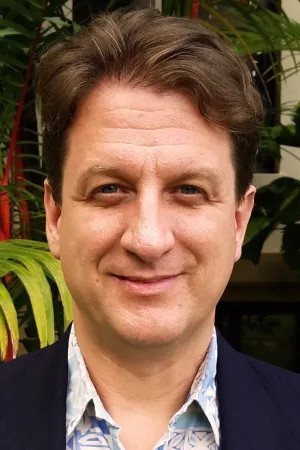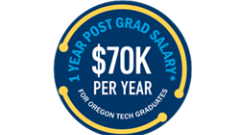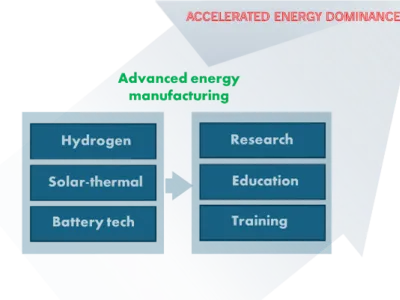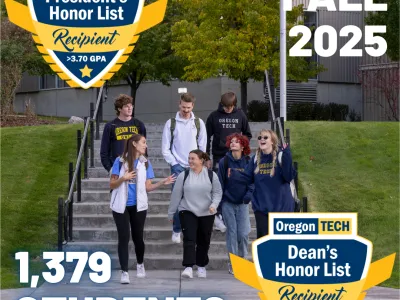
Brett Oppegaard, Ph.D., an online faculty member contributing to the User Experience (UX) certificate program at Oregon Tech, was recently presented the 2025 Special Achievement Award by The American Council of the Blind (ACB) for his research with the National Park Service (NPS) on media accessibility.
ACB’s Audio Description Project gives annual awards to honor the people and organizations that make outstanding contributions to the quality and availability of Audio Description nationwide.

NPS/Karen Battle-Sanborn
Oppegaard’s work in accessibility and UX with the NPS led to the creation of Audio Description at more than 200 public places throughout the country, including iconic and national landmarks such as Yellowstone National Park, The White House, Grand Canyon, The Statue of Liberty, and the Lincoln Memorial. Distinct from audio tours, Audio Description is the remediation of visual media, such as photos and maps, into audio media, primarily for the benefit of people who are blind or with low vision.
Oppegaard’s UniDescription project was supported by funding from the National Park Service, the National Endowment for the Humanities, the National Endowment for the Arts, and corporations, such as Google.
Oppegaard’s research interests include media-production processes and products at the intersections of UX, Generative AI, Interaction Design, Disability Studies, and Digital Inequalities.
Oppegaard has served on the faculty at many institutions, including the University of Portland, Washington State University, and the University of Hawai‘i. At Oregon Tech, he will design a new special topics class on UX accessibility, set to launch in Spring 2026. This course is part of his collaborative effort to establish the state’s first accredited UX certificate. His contributions to the certificate program will draw from his research with the NPS.
“I'm not aware of any other class that will be like it in the country,” he said. “Oregon Tech students, therefore, will be getting access to a global-leading initiative in the process, giving them a competitive advantage in UX training in the field of media accessibility, unlike anything else in the world.”
###









